Lynn Penner-Ash spent over 40 years in the wine industry, most of it in Oregon’s Willamette Valley. In Part II of my interview, I talk with Penner-Ash about starting Penner-Ash Wine Cellars, her experiences winegrowing in Oregon, and her decision to retire from the industry. The content has been lightly edited for clarity. Read Part I here.
In 1998 you first started making wines under the Penner-Ash label. How did that come about?
Paul Hart [at Rex Hill Winery where I was working] was very gracious, and he allowed [my husband Ron and I] to start our own label. We just wanted to have something we could make that was completely our own. We really only thought it was going to be a very small 100, 200 case project.
Paul actually even let me take fruit from some of the vineyards that Rex Hill was harvesting fruit from. So we made just a small little batch on the side and released it. It was so well received that we were able to continue to double from 125 to 250 cases. That was very exciting.
What made you ultimately decide to leave Rex Hill and focus full-time on Penner-Ash?
When we got up to about 500 cases, my husband I both realized that, this is pretty serious. We could probably launch this and, to be honest to Paul, we really shouldn’t keep doing this simultaneously. It’s hard to go out representing Rex Hill, but they want to talk to you about Penner-Ash. I just could not in good conscience do that anymore.
So I approached Paul and said that we were going to take off and do our own thing. He really still graciously was saying ‘No, no, no. You can stay here and do this.’ I just I felt I needed that experience to go off and just do it on my own kind of thing, cut the ties. So we did, and I left Rex Hill full-time in 2001.
I assume you were traveling around and pouring your wines and promoting them. What was what was that like, trying to bring awareness to Oregon making wine around the country and beyond?
It was challenging in the early years. I used carry a map of the United States and say ‘There is a state in between Washington and California.’
A lot of times people would get very upset and say ‘Oregon Pinots are too expensive!’ Then they’d show me their shelf, and I’d look at it and say ‘That’s a California Pinot. It’s not even Oregon!’ There was a lot of that challenge to get people figuring out exactly where we were and what we were trying to do here in Oregon. But there was also a lot of curiosity and excitement.
I think some of the things that Oregon did in the early years with the International Pinot Noir Celebration, the Oregon Pinot Camp, really brought Oregon Pinot to the forefront of the conversation, which made it so much easier.
You left Rex Hill in 2001. How did you find that piece of land where the winery sits?
We had some acquaintances who wanted to start their own brand. We came to realize that they didn’t know a lot about winemaking and probably didn’t have the skill set to manage that type of project. So we said, ‘Well, what if we partnered on this together and work together to grow Penner-Ash and bring it to a bigger production level?’ When they were all in, we were able to look at bigger pieces of property than we originally intended.
But ultimately it was by word of mouth. Andy Gallagher of Red Hill Soils had just dug a soil pit out on the property we have currently. He said ‘You need to check this out. I think it’s a phenomenal site.’ So we went right up there, checked it out, and pretty much had an offer on the table within the next day or two.
You broke ground on the winery in 2003 and started production there in 2005. You were biting off a lot of big pieces very early on.
Oh my goodness yes. Our first vintage in our new winery [in 2005] comes in, and I don’t know if you remember it, but it was highly reductive all across the Willamette Valley. I don’t think I slept that entire vintage because I kept thinking it was something we had done in the design/build process that is screwing up the wine.
It was a very, very stressful period of time for me that very first vintage in our brand new facility. We worked so hard that year. But in the end, the wines turned out to be lovely, and we went from there. We had such a beautiful spot. We worked hard to get our direct-to-consumer up and running, so that when we opened the doors, it was nonstop from that point on.
From then to a decade-plus later when you sold your winery to Jackson Family [in 2016], there was a lot of evolution in the Oregon industry.
The wine industry had grown greatly and to the point where there’s so many wineries that I don’t even know who’s behind them. That was eye opening to me when somebody would mention a brand and I’d say ‘I’m sorry, where are they from?’ They’re from ‘The Willamette Valley,’ and I hadn’t even heard of that brand.
It was harder to get together and market together. You had your camaraderie, but you had more of your camaraderie within your group, rather than it used to be like the whole industry was one big group. So that was challenging, a little bit sad for me in the instance that suddenly I didn’t know people the way we used to know people.
We also all had started having children that point, so you’re in that high maintenance stage of raising kids and having to go to lacrosse and soccer games and things like that. I was also slightly distracted from what was going on in the wine industry, too. I put my head down when I was at the winery and focused on that.
You grew the winery quite a bit over the years. Did that happen organically?
The biggest thing that hit was the 2007 vintage. When that vintage came in, it came in so heavy because of the rains that we had had at the time. Suddenly we went from a mere 10,000 to almost 18,000 cases.
I remember our accountant pulled us aside and said ‘If you guys don’t get on the horn and just start selling this wine right now, you’re gonna kill your brand. It’s too much wine for you to bring through this facility and process and bottle and put it out in the market.’
So my husband and I took him seriously, and we hit the market. Every other week one of us went on a market trip, working really, really hard to sell wine. And we did it.
How did the sale to Jackson Family come about?
[2007] launched our brand from 10,000 cases to 18,000. Then from 18,000, we went to 24,000. Suddenly [Ron and I are] looking at each other thinking ‘This is huge. This is a big project.’ It’s a lot of work, and we have a lot of employees.
I think at that point, something clicked for me. I was spending more of my time managing employees and marketing and sales and worried about financial aspects, not doing the things that I love in wine and winemaking. So when Jackson [Family] approached us, we thought maybe it’s a good idea.
You worked over a wide span of vintages in Oregon. How has winemaking and winegrowing changed? Has it has it gotten easier to grow fruit and make wine in Oregon, or has it just gotten different?
I just remember walking through those vineyards when we had 8×10 spacing, which was huge. You’re looking at it trying to figure out what your crop load should be. We’re all looking at it by the acre and suddenly that the whole methodology or mindset changed, we should be looking at pounds per plant type of thing, or pounds per foot on a trellis system.
People really started thinking hard about what we were asking our different vineyards to do based on their spacing. That was eye opening for me because nobody had really thought about that earlier on. That was the first step.
Then the next step was, of course, the Dijon clones coming in to Oregon. Suddenly we have these new clones that are going to help us bring that maturation up maybe 10 days earlier than what we were seeing in normal years, but also having to deal with phylloxera.
So now rootstocks are introduced into Oregon. There were a lot of new challenges that none of us had any experience with and had to really work together and do trials and talk about what we’re learning.
Then the next step, I was involved with was Ken Wright, myself, Steve Doerner, Laurent [Montalieu], and the Casteel brothers. We sat down and did an experiment about thinning because there was this whole mindset in Oregon that you went in and you thinned at color. Why can’t you do it earlier? If you’ve got three clusters and you only want the two, why not get that rid of that third cluster earlier? How does that impact your fruit quality?
What we found was if you get it done earlier, you actually have a better reaction or response from the plant, and it makes so much more sense. I like to think that we actually changed some of the thinking in the Oregon vineyard scene by all of the experimentation that we were doing back in 1997, ‘98, ‘99.
The climate has obviously changed as well during this time.
The last 10 years or so, as it started getting warmer and warmer, we’ve really rethought a lot of that conversation because it was ‘Can we carry a little more fruit to help slow down what’s going on in the vineyard?’ than we used to think about when it was much cooler. We’re getting much more fruit per acre than what we used to get in the ‘80s and ‘90s versus the 2000s.
After you sold the winery to Jackson Family, what has the relationship been like?
I appreciate that Jackson Family allowed me to hire Kate [Ayres], who has now become the winemaker at Penner-Ash. I had the ability to hire someone who I wanted to see become the winemaker. I have spent the last 6 years working with her.
I’m very comfortable she understands what our original dream and goal and style was. I think she’ll continue to honor that. But I’m also realistic that she’s going to put her own little tweak on it. We all want to do that.
My number one goal was that Jackson Family have an Oregon team. We don’t need a California team to tell us what needs to be done. They now have a really great Oregon team, and it makes me happy to see that has come to fruition.
What made you decide to walk away at this point?
I have achieved a dream, we did a really great job of it, and we had a lot of fun at it. I just think that there’s other things out there to experience and explore and be a part of. Keeping one foot in the door also doesn’t allow Kate to fully grow and shine and do her own thing, and I think she’s ready for that.
So I’m thinking ‘Why am I hanging around when I can actually go ride my gravel bike in the Alvord Desert in the middle of the fall?’ I’ve never seen a fall in 41 years without grapes and yellow jackets. It’s exciting to think about those instances now that there’s more time to go off and do things and enjoy your family and friends than the wine industry allows for.
What do you think you’ll miss the most?
The harvest, the crew, the camaraderie. I loved all the interns, getting to know those young people that are coming from all over and spending time interacting with them at lunch, hanging out, learning more about their dreams and their hopes. I miss the creativity and the on-the-spot decision making. I miss working with Kate and the rest of the crew. They’re a great crew, and we had a lot of fun. Even though I’m 20 to 30 years older than them, I feel like they kept me engaged and young and understanding what their issues and needs are. And, of course, the new bands I need to listen too!
I miss tasting the wine with them and making comments about the wine. There’s a lot of fun interactions that take place during those tastings.
Similarly, what do you think you’ll miss the least?
What I’ll miss the least is all the administrative and all the legal aspects and the challenges. COVID was hard, hard, hard, hard, and I will not miss any of that. I will not miss any of the human resource aspects of it all. It’s just very challenging. I do not miss working with distributors. That’s also very challenging.
You’ve had a lot of opportunity to both shape the Willamette Valley industry and also a lot of the people there. What’s it like for you now looking at just how far the valley has come in the period of time that you’ve worked there. I would think it would be pretty rewarding to see how much it’s grown and changed, and you’ve obviously played an integral part in that.
I think back to all the hard work that we all put in, creating these events abroad. We now are a destination for tourism, which wasn’t necessarily the case early on. So you realize how successful we’ve become.
I think, yes, I’ve been a huge part of all of that. Getting our wines recognized around the world. Having your wines in all the different places that our wines are is a pretty amazing accomplishment.
I have to take a breath every so often think about that and realize how much we did accomplish, because you tend to forget sometimes as you get caught up in other things. I love what I’ve done, and I think I’ve done a pretty damn good job of it.
You’ve talked about some of the difficulties you faced as a woman without a lot of women in the industry when you started out. To what extent has that changed? To what extent is that the same in Willamette Valley or beyond in your opinion?
I’m really proud of the fact Oregon is much more diverse than a lot of other wine regions. I don’t have a statistical number that I can prove. One of the things we’ve worked hard on is being inclusive. We have a women’s group. It used to be called ‘The only woman in the room,’ and now we call it ‘The women in the room.’
We’ve gotten together to support each other trying to help the younger generation come together. There’s now professional organizations that are working to bring more diversity and inclusivity into the Oregon wine industry. So I’m very happy to see that, and there’s more that needs to change. But I think Oregon has actually changed more so than a lot of other industries, and I’m proud of that.
I get a little frustrated sometimes when I hear women say ‘I don’t know what you’re talking about. I’ve never had any discrimination issues in the industry.’ I’m thinking ‘Well, good. You should thank me. You should thank Luisa Ponzi. You should thank Cheryl Francis.’ There’s so much credit given to the pioneers in Oregon. They found the spot. They started their wineries. But there’s also been some growth in the mid-ages [of Oregon]. I think people forget about that period of our history.
What are you going to do with yourself now?
We spend a lot of time in Bend, [Oregon]. Skate-ski season is coming up, which is a big passion of mine. I love getting out there and skating. We’re planning all kinds of interesting trips.
Hiking, biking and fly fishing in Patagonia next year, driving the ALCAN Highway in our Sprinter Van, riding from Telluride to Moab on our gravel bikes with friends.
One goal is to paddle 100 unique bodies of water on our stand-up paddle boards, and we’re at 75. So I’ve got to finish that goal.
There are so many adventures ahead for us.
As you’re signing off from the wine industry, are there other things you want to say?
The wine industry can be a lot of fun. It can be a great job, opportunity, and career. I think that we all need to continue to keep in mind that we’re all unique and very different and just respect that and continue to support each other.









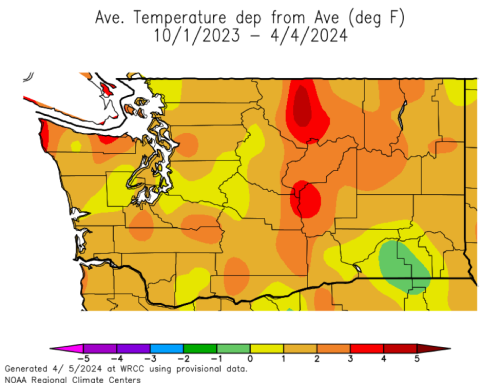
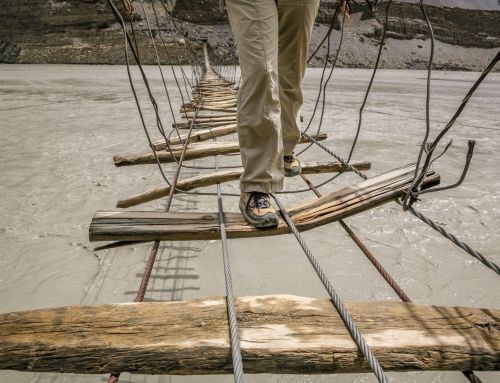
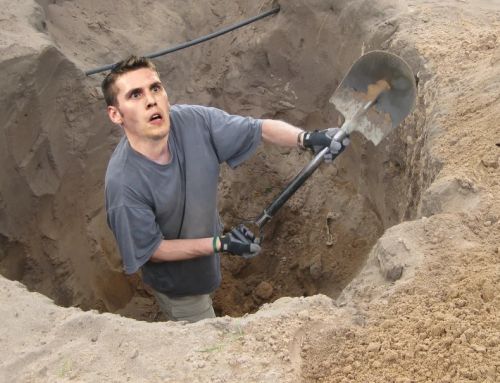
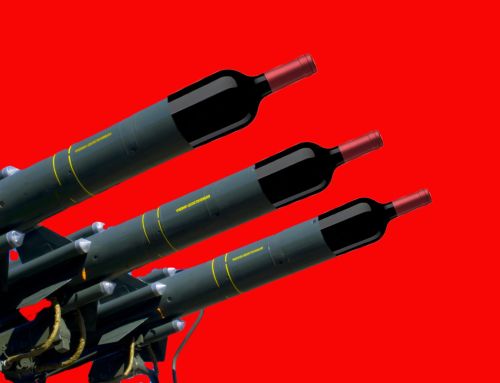
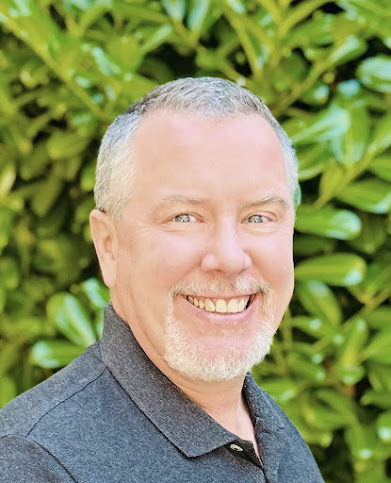
Leave A Comment